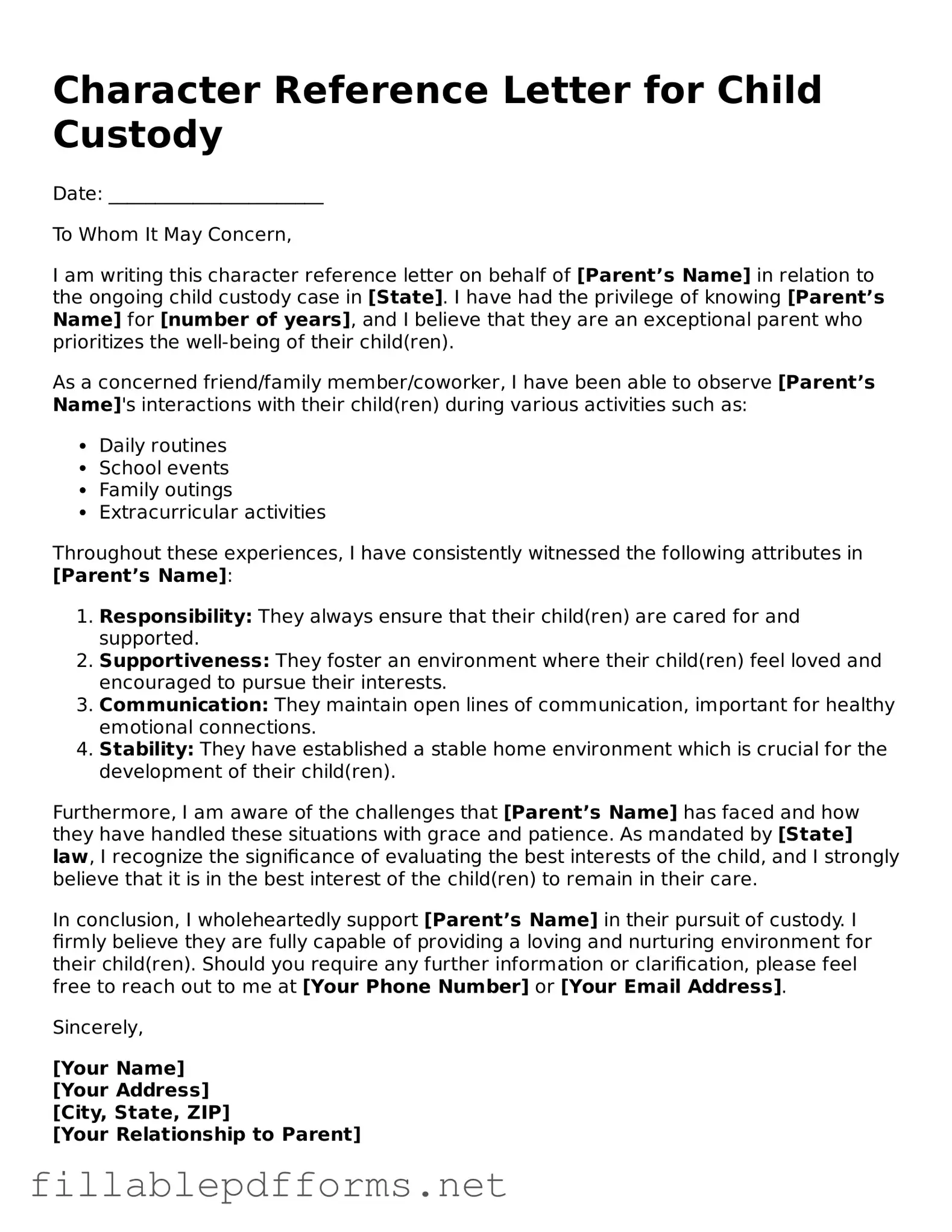Blank Character Reference Letter for Child Custody Template
The Character Reference Letter for Child Custody form serves as a vital tool in custody proceedings, providing insights into a parent's character and suitability for raising their child. This letter is typically written by individuals who can attest to the parent's abilities, values, and commitment to their child's well-being. It plays a significant role in influencing custody decisions by offering a personal perspective on the parent's lifestyle and parenting skills.
Launch Editor Here

Blank Character Reference Letter for Child Custody Template
Launch Editor Here

Launch Editor Here
or
▼ Character Reference Letter for Child Custody PDF
Almost there — finish the form
Complete Character Reference Letter for Child Custody online fast — no printing, no scanning.